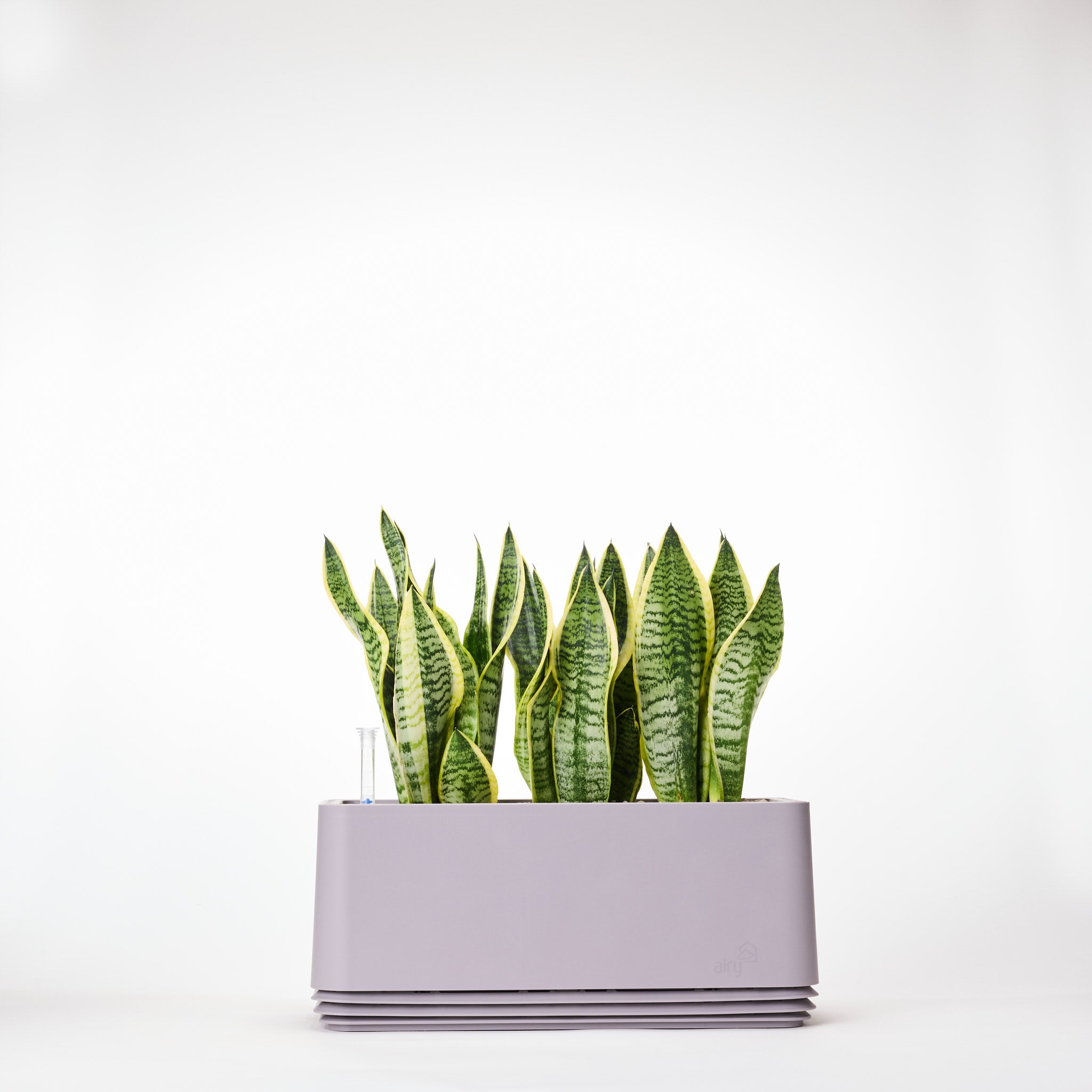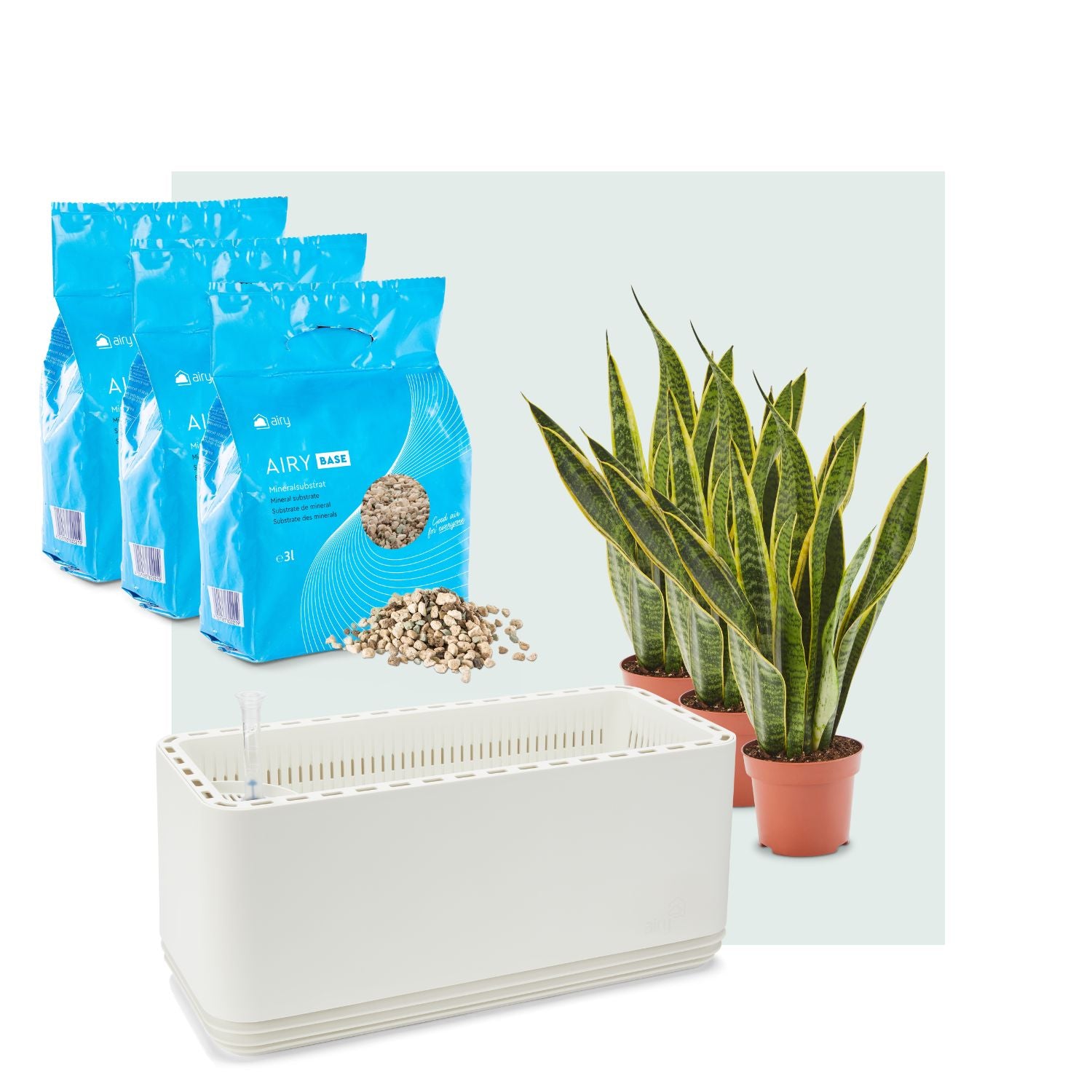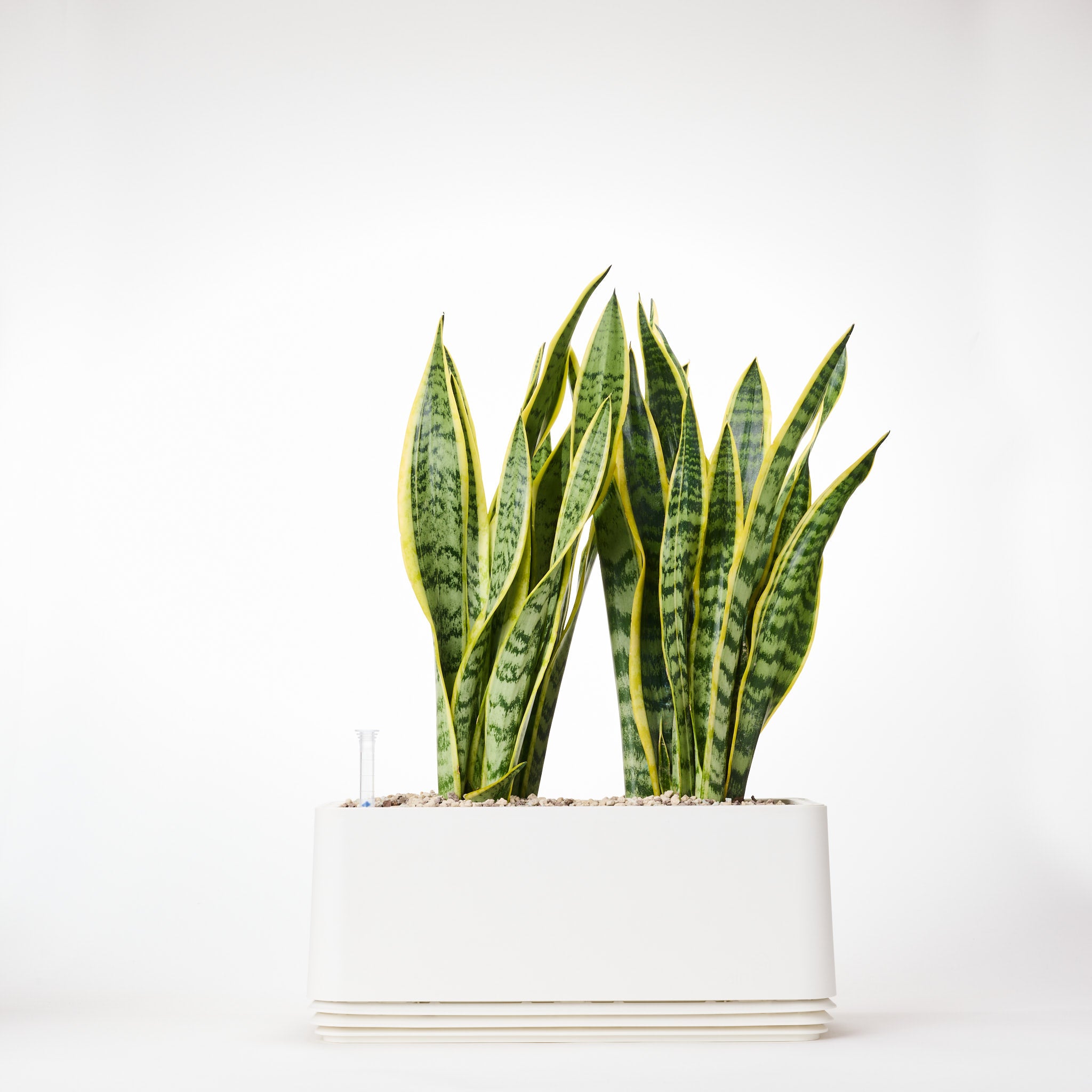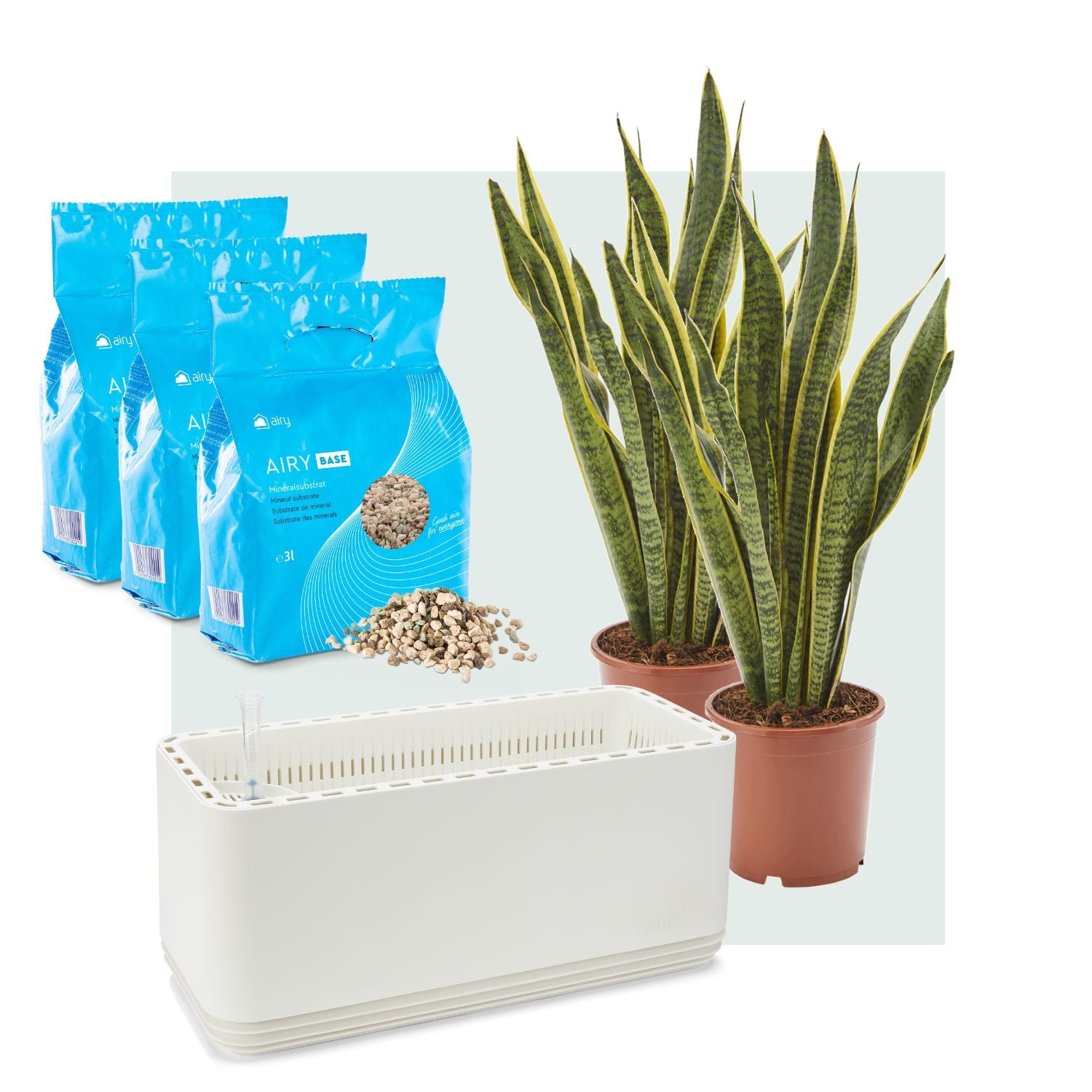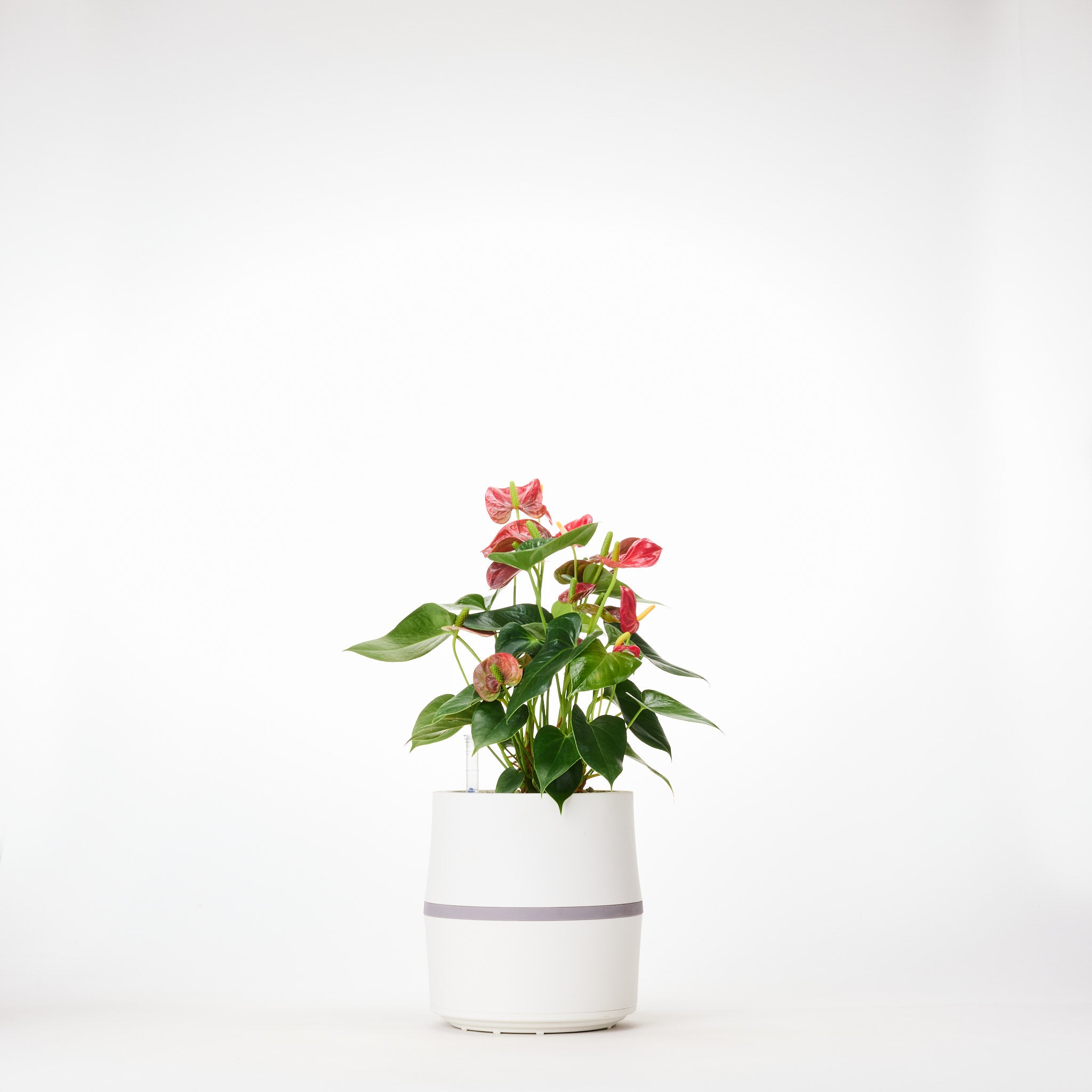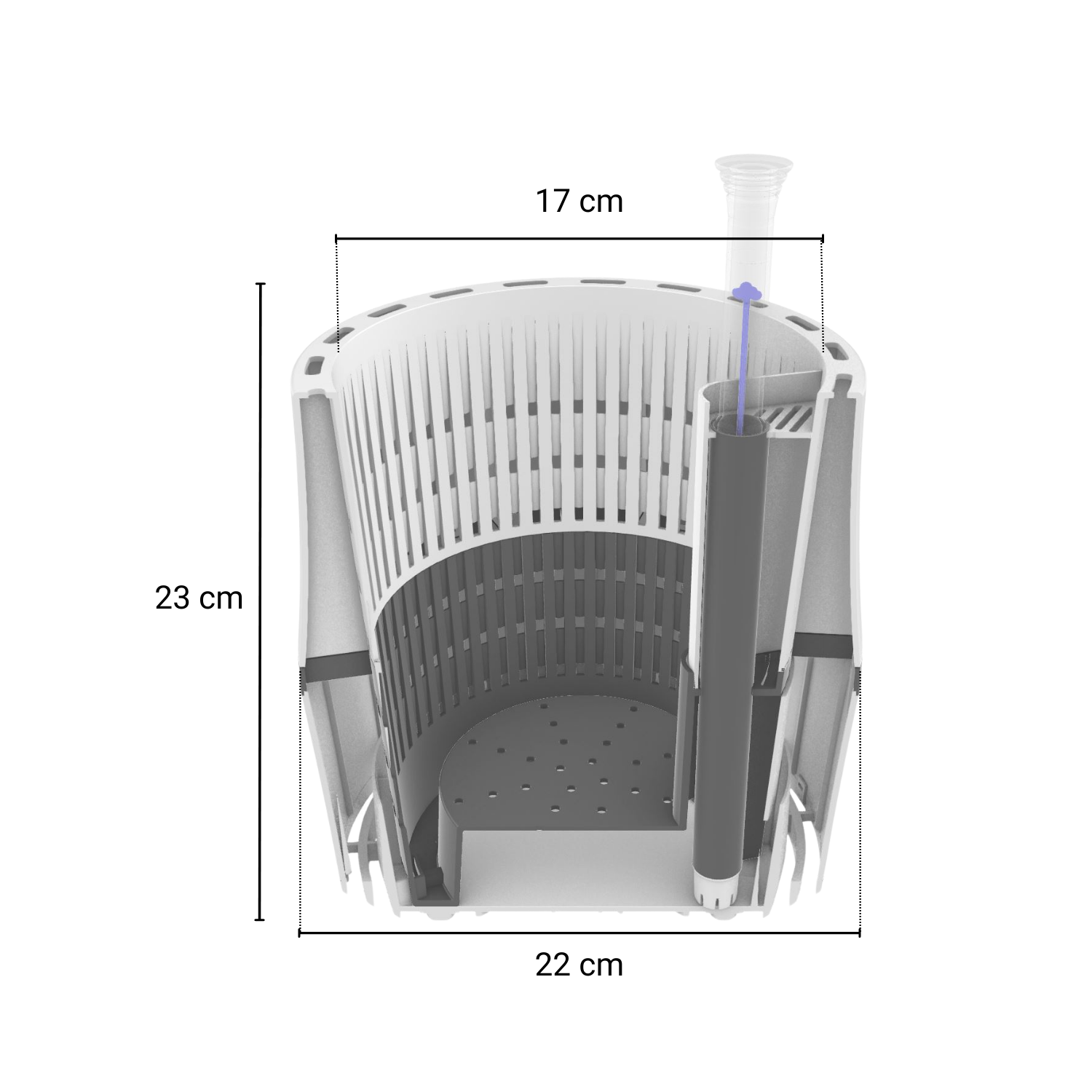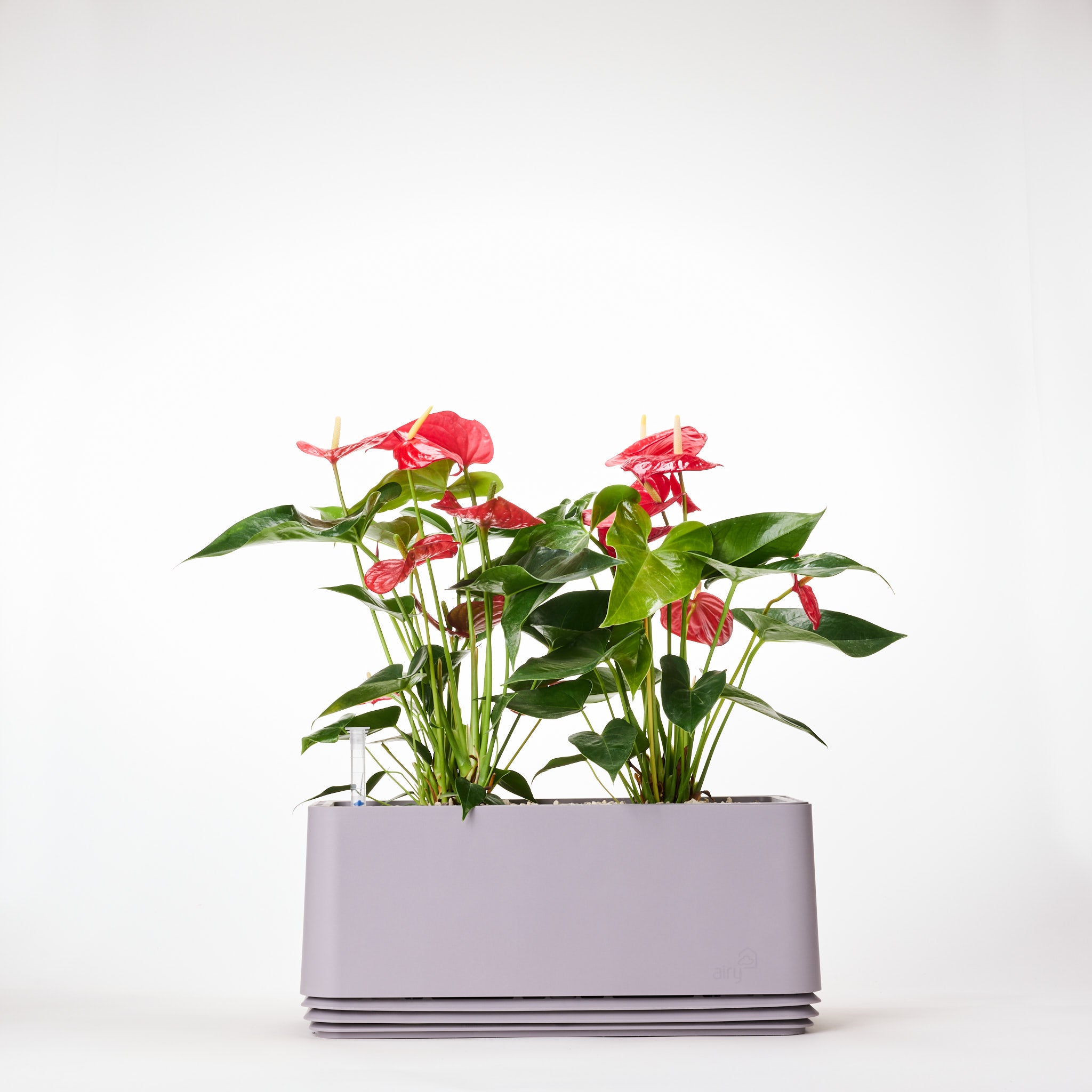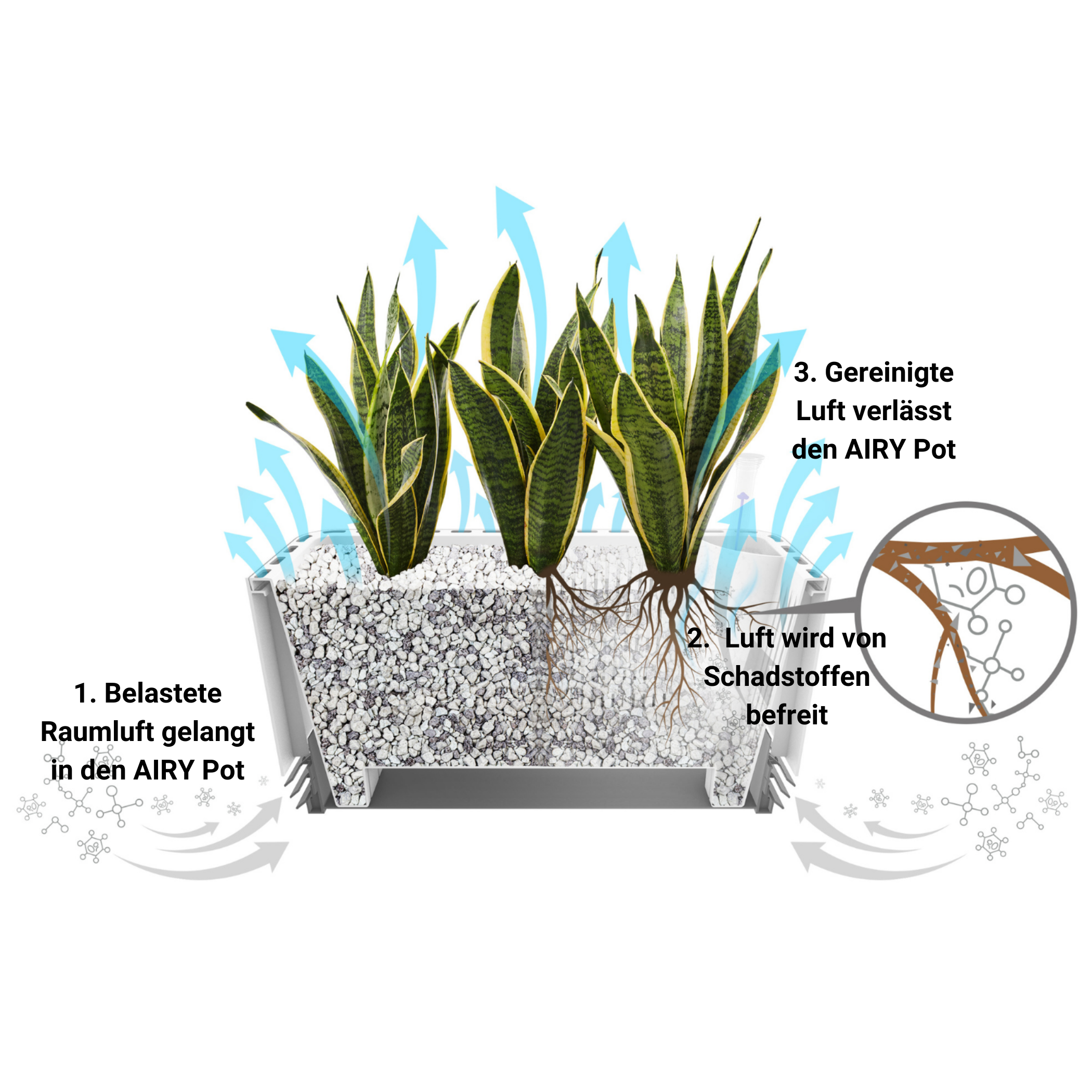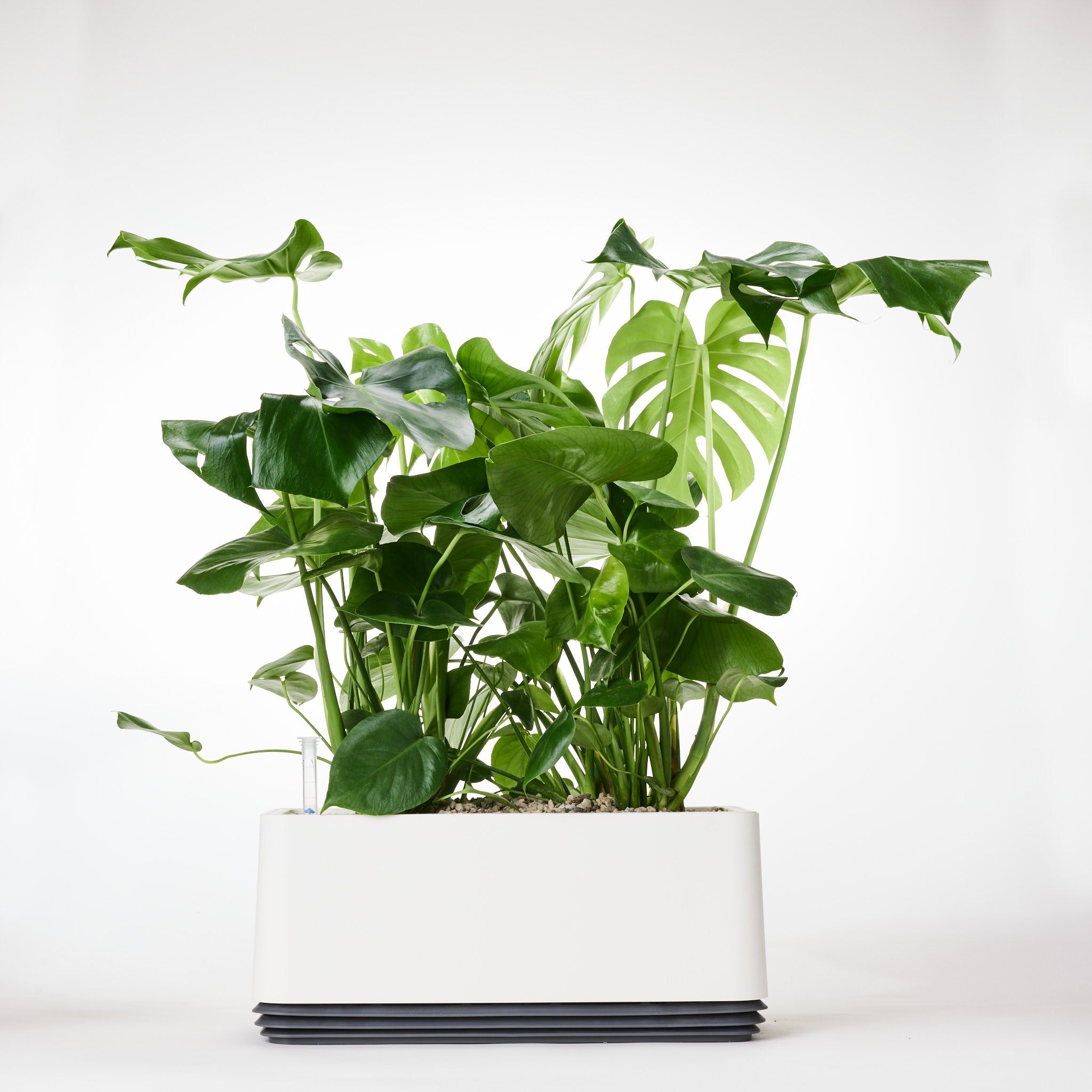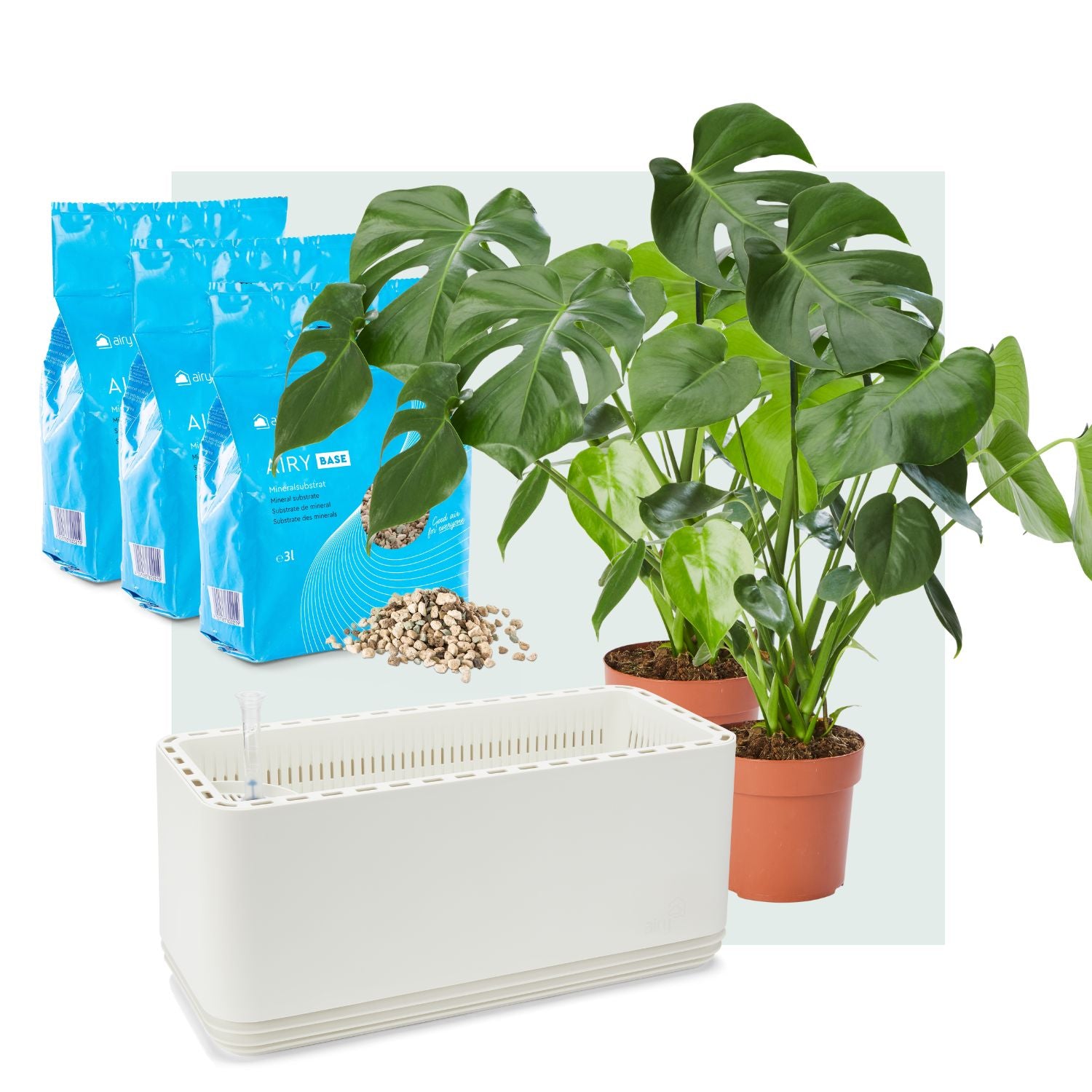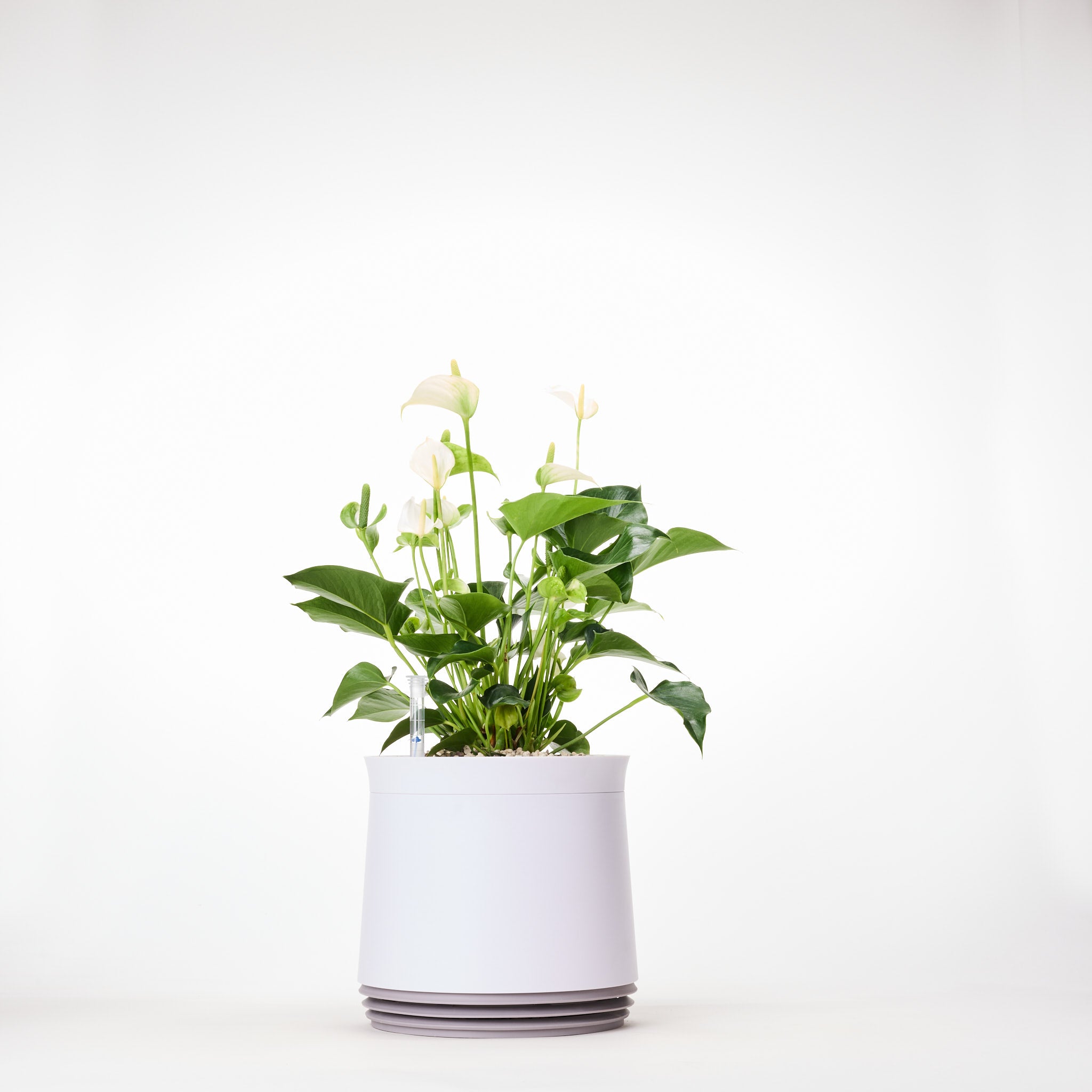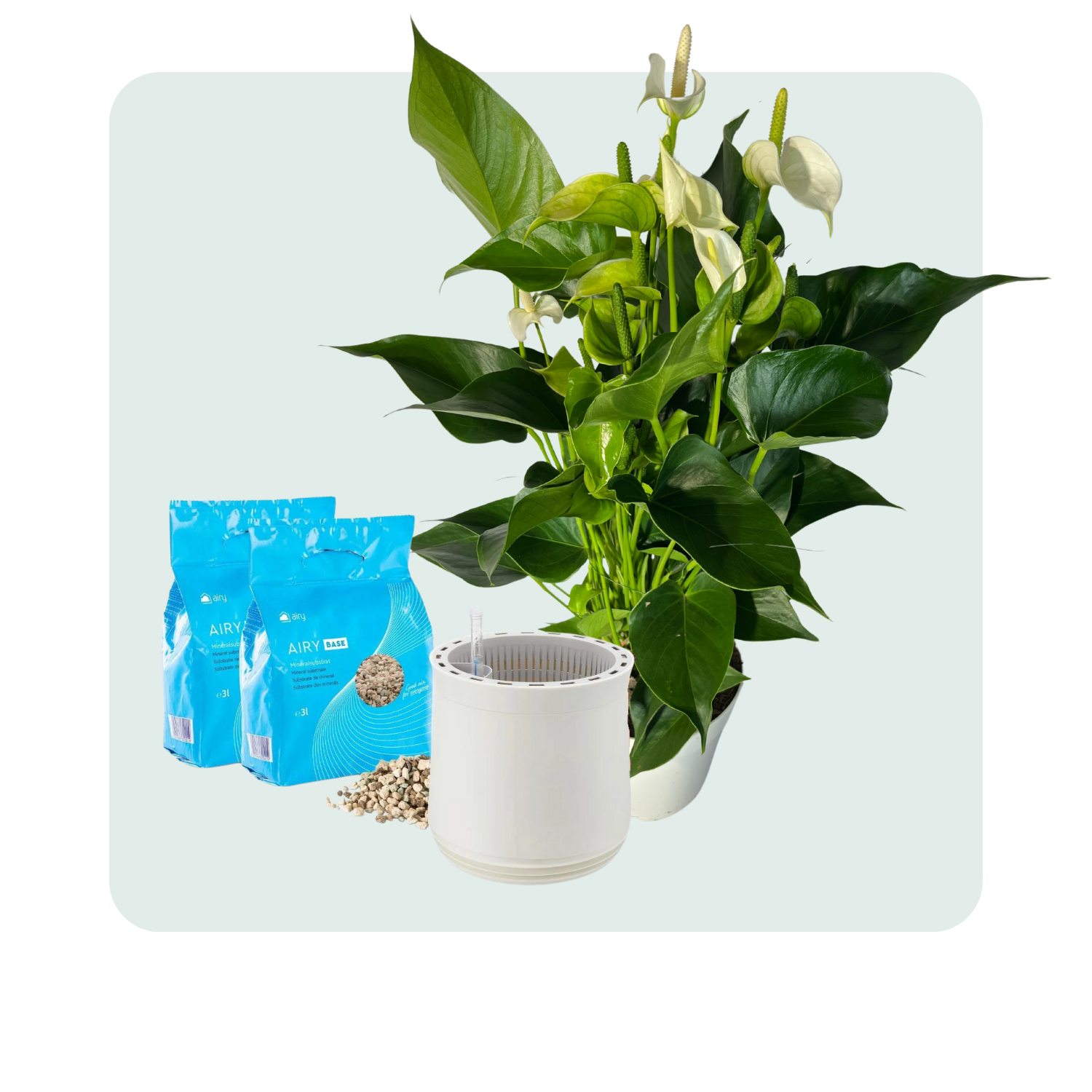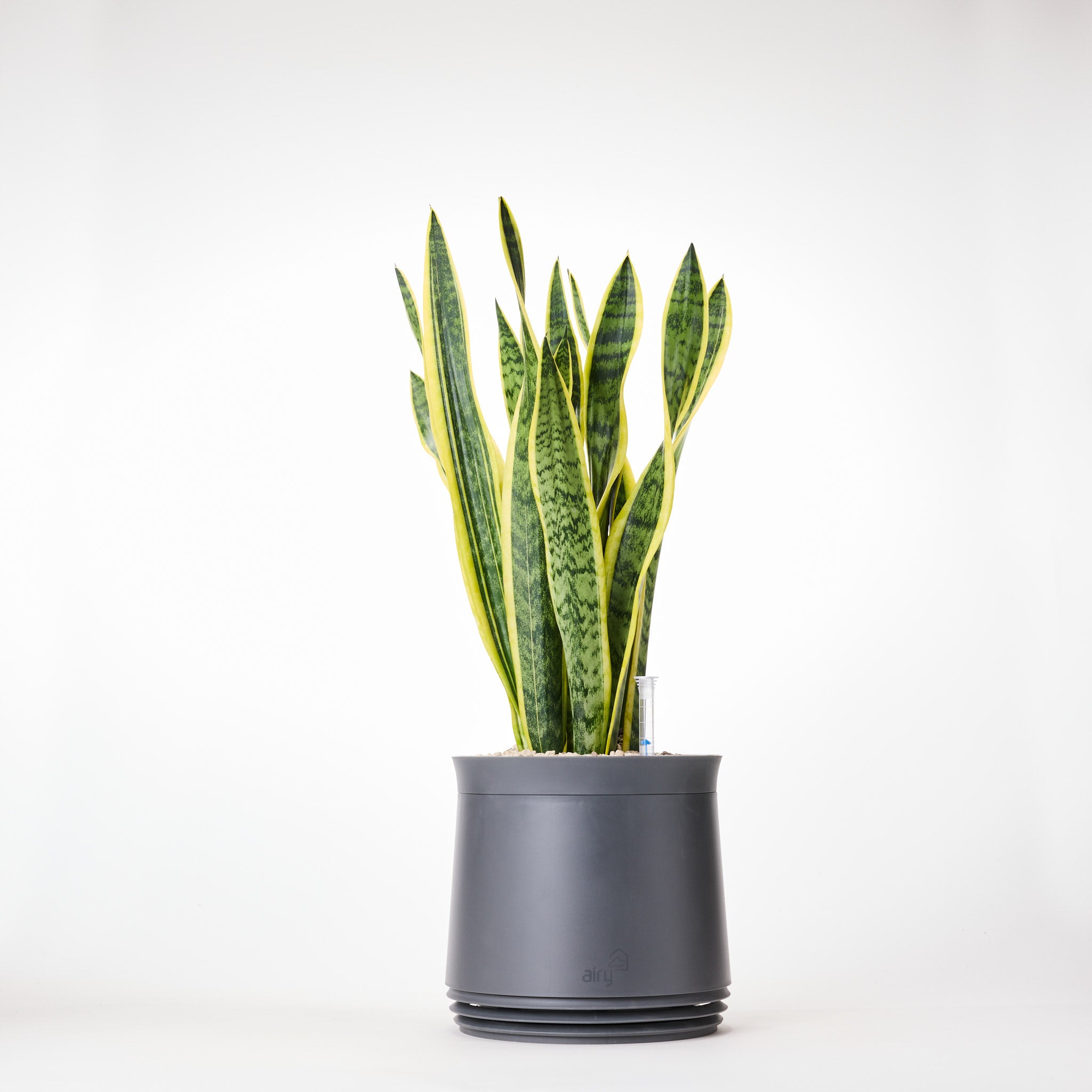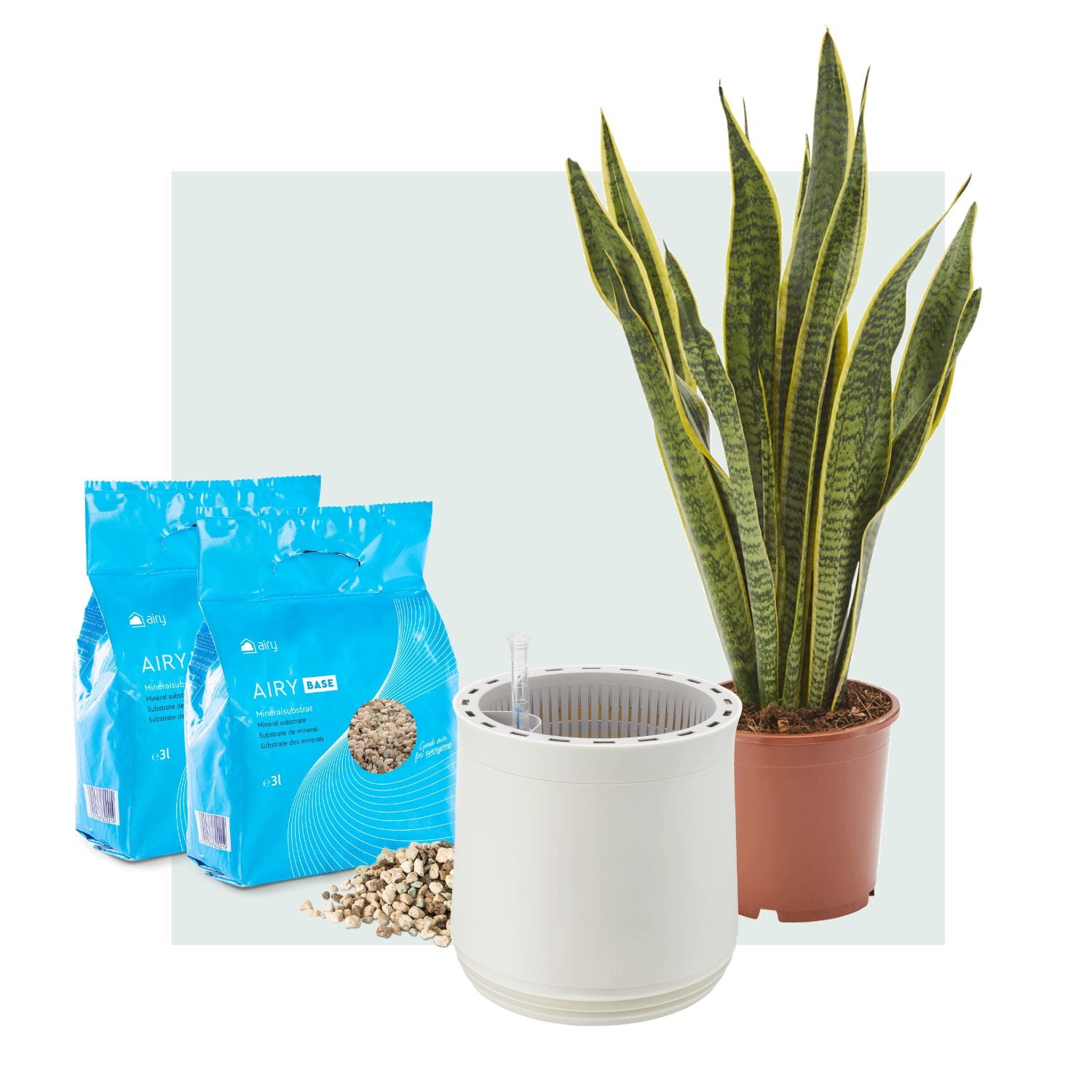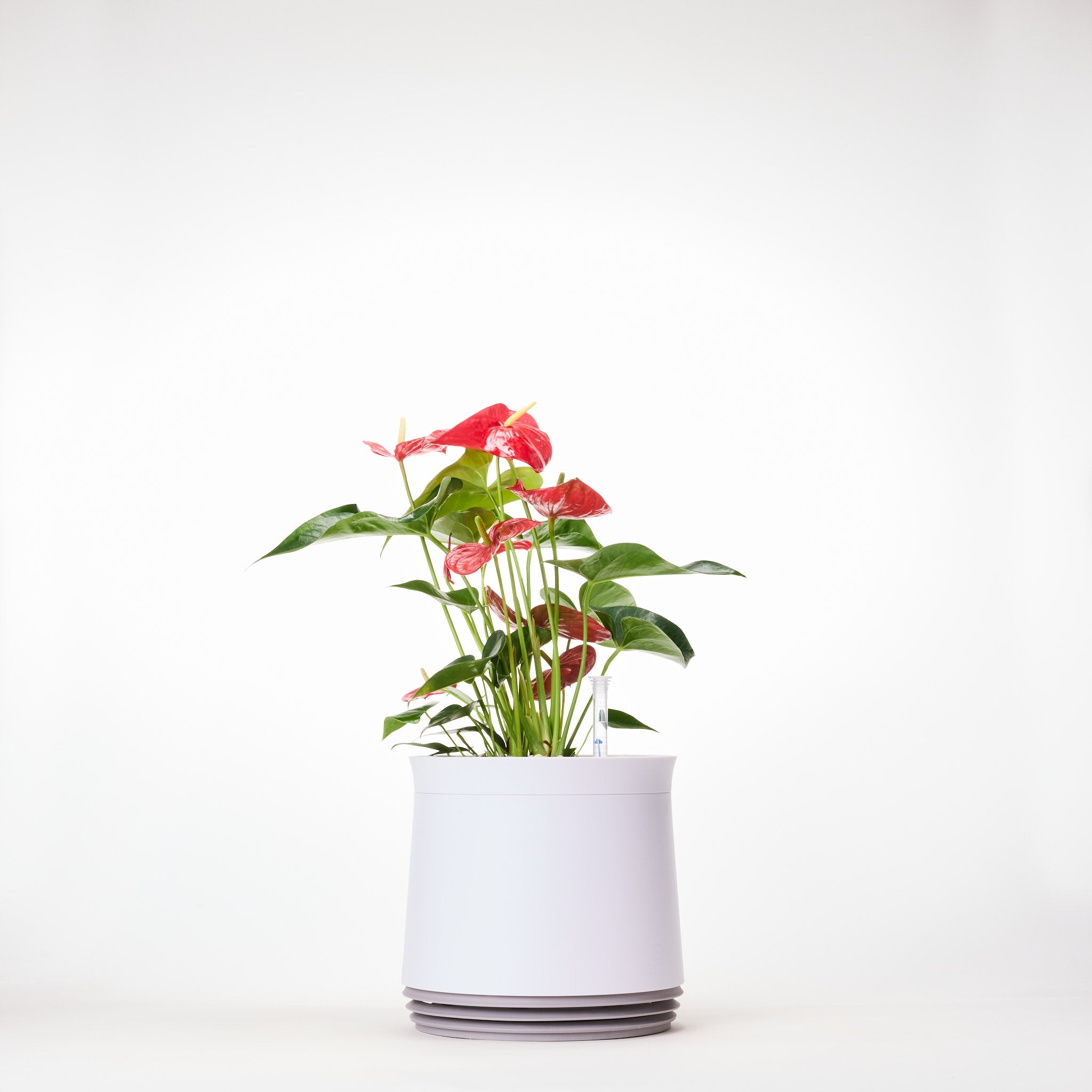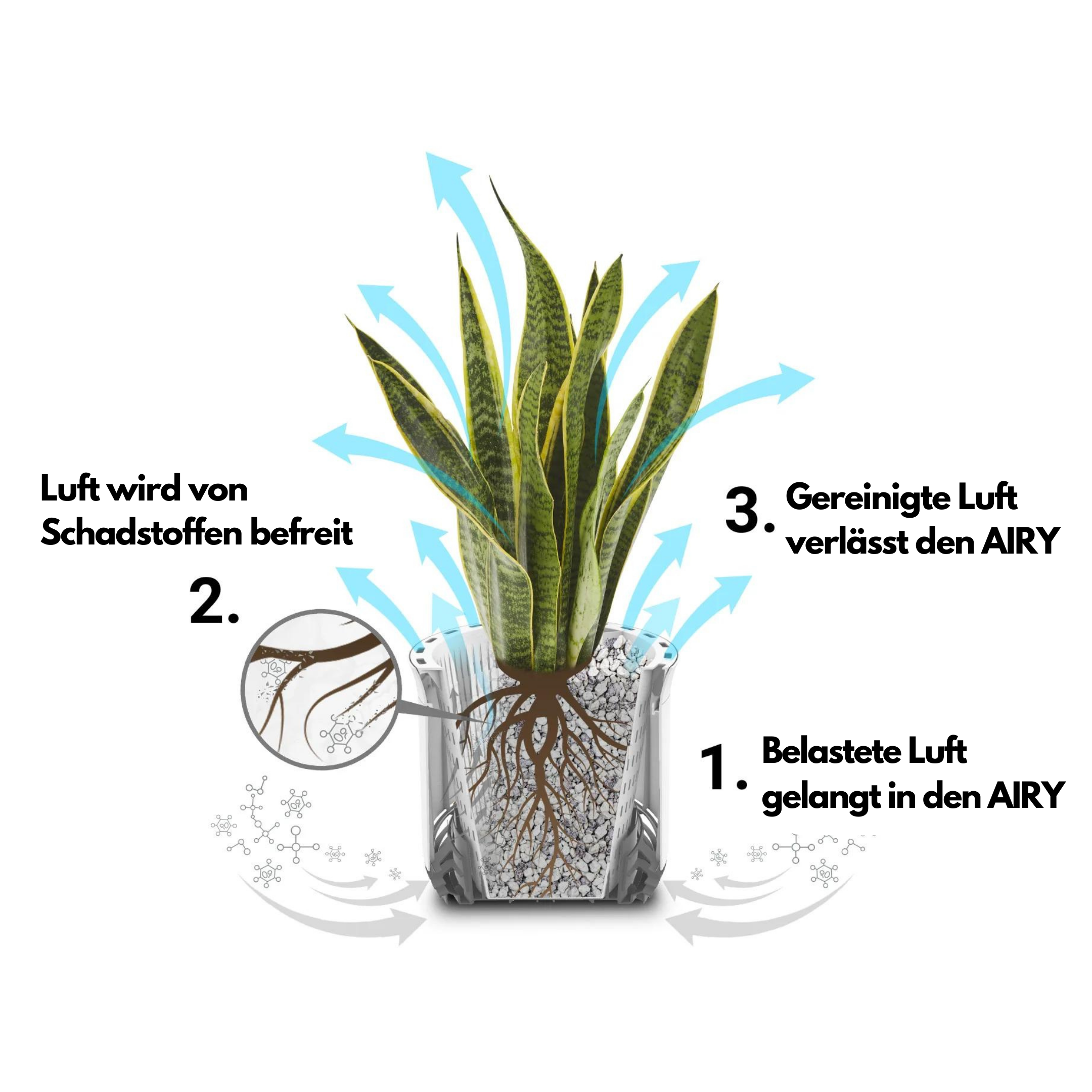
The AIRY secret
High-tech and nature in symbiosis
AIRY is based on NASA studies. They researched ways to effectively remove pollutants from indoor air. In a series of tests, the space agency found that certain plants have excellent properties for improving air quality. The highlight: Even if the leaves of the respective plant were completely removed, the plant's performance only fell by up to 12%. So the secret obviously lies in the plant roots!
AIRY brings this observation from the NASA laboratory to your windowsill.
The AIRY biofilter creates an air flow without electrical ventilation (“chimney effect”). The air is passed through a special substrate that filters the pollutants. And this filter is cleaned by the plant roots.
So easy. So effective.
Scientifically proven
AIRY maximizes the air-purifying effect of plants by up to 8 times compared to plants in closed pots. The performance of our air purification system has already been tested in several scientific studies:
The 2018 test reports No. MAIC-2018-4946 and No. MAIC-2018-4944 showed that the AIRY system reduced the concentration of formaldehyde by almost 50%, the concentration of toluene by almost 30% and the concentration of xylene by almost 20% reduced. For this experiment, a dragon tree (Dracaena) was used in a controlled chamber. In 1994, the Helmholtz Center Munich (formerly known as the “GSF Research Center”) demonstrated the ability of plants to convert pollutants (in this case formaldehyde) from indoor air into non-toxic nutrients such as glucose and amino acids.
In 2005 , Beijing Peking University tested the cleansing properties of plants in two specially developed controlled chambers: In one chamber, the researchers placed a plant in the precursor of an AIRY-System M (formerly known as “polluSan”), the other remained empty . They then introduced identical amounts of pollutants into each chamber and measured the concentration levels 24 hours later. The results showed that the two plants used (cereal stalk and single leaf (Spathiphyllum)) removed up to 77% of benzene and up to 80% of formaldehyde from the air.
An investigation by Kirchner GmbH, an engineering company for environmental protection, to measure the ability of AIRY to filter formaldehyde from a furnished room of 37 square meters. The results show: The formaldehyde concentration is reduced by up to 50%.
In January 2020, M.TEC Engineering conducted a study measuring the effectiveness of the AIRY System L on the level of relative humidity in a 30 square meter room with furniture and people. It showed that using the AIRY System L in a dry room can increase the level of relative humidity by up to 10% RH during the first 24 hours.
The Solar Impulse Foundation is a non-profit organization founded in 2003 by Bertrand Piccard and André Borschberg in cooperation with the École Polytechnique Fédérale de Lausanne, dedicated to environmental protection.
The foundation is primarily known for the first circumnavigation of the world in a solar-powered aircraft in 2016 and for awarding the Solar Impulse Efficient Solution Label to 1,000 solutions that protect the environment in a profitable way.
AIRY was awarded in 2019. The expert commission's report is available here.
AIRY Biofilter S and M vs. closed plant pots
Unbeatably fast and effective
At the leading manufacturer of highly sensitive air measuring devices air-Q, we sent the AIRY Biofilter S and M into the race with spider plants against identical plants in a closed plant pot. The 1 cubic meter test chamber was artificially contaminated. The change in pollutant concentration, i.e. the VOC value as well as fine dust content and air humidity, was measured. The results are clear: In just 27 minutes, the AIRY Biofilter M with spider plant reduced the VOC value by 50%. The fine dust content fell 76% faster than with the closed pot.

Results from the air-Q Lab for AIRY System L
Maximum air purification for large rooms
We tested our largest system, the AIRY L, with three arched hemps under the same conditions. In comparison, three closed plant pots with identical plants. With AIRY, the fine dust content fell by 50% within just 20 minutes. In the test chamber with the normal pots it took 50 minutes. Within 1 hour, the humidity in the AIRY test chamber rose by 52%, while in the closed pot it was only 32%. The VOC value fell to a minimum level 3.5 times faster with AIRY L. This video was made using the air-Q air analyzer .

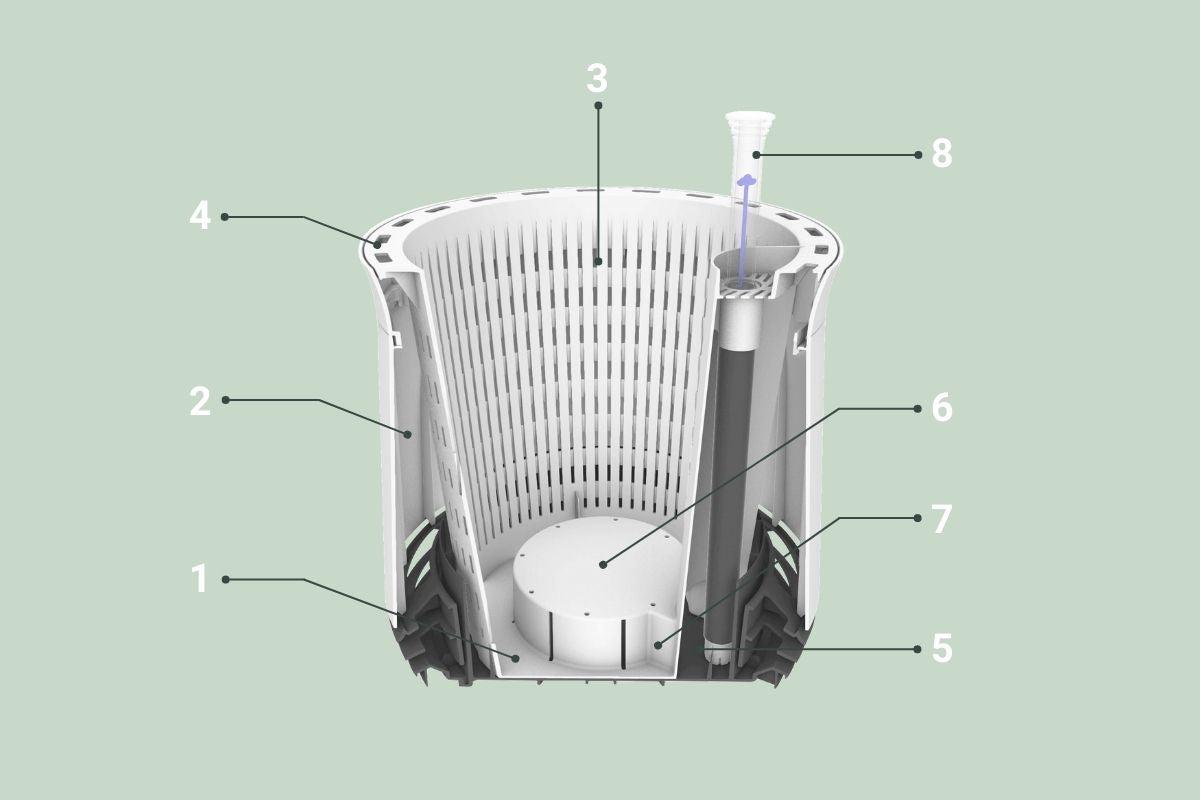
Form follows function
Hi-tech in a flowerpot
The AIRY biofilter combines two functions: effectively aerating the mineral substrate while simultaneously creating the best living conditions for plants. A look inside the AIRY reveals the two-chamber principle. Through the air inlet (1) at the bottom, the contaminated room air flows into the specially shaped airflow chamber (2). The perforated inner pot (3) allows air supply to the substrate. Here, the air pollutants are filtered and absorbed by the plant roots. The purified air escapes through the air outlet (4). Water tank (5), waterlogging protection (6), and drainage (7) supply and protect the plant for a long lifespan and high performance. The integrated water level indicator (8) reliably signals the individual water needs for each plant species and facilitates their care.
Production sites: Bad Iburg (Lower Saxony) and Zella-Mehlis (Thuringia)
Electricity-free air circulation on a physical level
The chimney effect
AIRY achieves a continuous exchange of air without electrical ventilation using the chimney effect. The special design, pressure and temperature differences as well as air movements in the room support the chimney effect. The slats in the lower area of the biofilter allow the air to rise between the inner pot and the outer cover and exit through the openings at the top edge and through the substrate. This means that the roots can absorb air pollutants much more quickly and efficiently, 24 hours a day, without annoying noise and costly energy consumption. With this physical effect, the air in a room is completely passed through the AIRY biofilter and filtered within 12 hours.

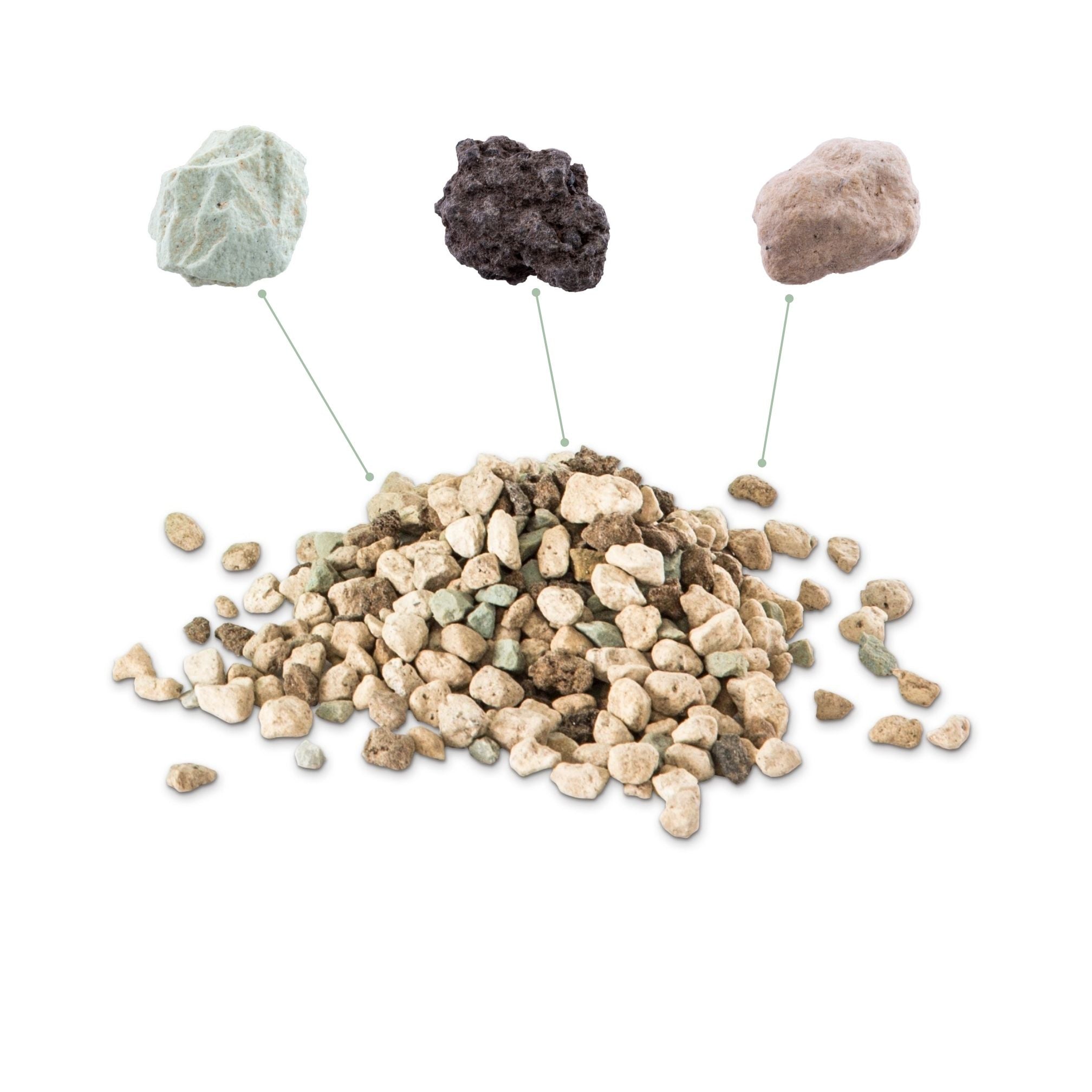
Natural biofilter made from volcanic rock
Smart substrate
Our "AIRY Base" consists of lava, pumice and zeolite rock. This power mixture developed by scientists significantly expands the effectiveness of the AIRY. The fine-pored stones promote root aeration thanks to their coarse grain size. In addition, they absorb an extremely large amount of water, which they gradually release to the plant roots. Odors and pollutants also get caught in the fine-pored structure thanks to the air supply from below. The capillary effect ensures the continuous absorption and residue-free release of pollutants from the substrate to the roots. This means that the rock does not become clogged. Unlike industrial filters or activated carbon filters, the substrate never needs to be replaced.
Production location: Kruft in the Eifel (Germany)
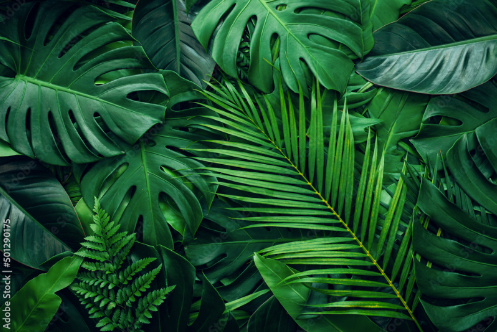
The specialists for clean indoor air
Air purifying plants
The NASA study has confirmed it: Some of our popular houseplants are particularly talented specialists when it comes to air pollutants.
The reason why different plant species can eliminate certain toxins is explained by the evolution of plants. The cause of this is decay gases that are produced around the Earth. Their concentration and composition depend on the geographical location and the nature of the soil. In order for plants to grow in this environment, they have learned to produce enzymes over the course of evolution to convert these pollutants into nutrients.

